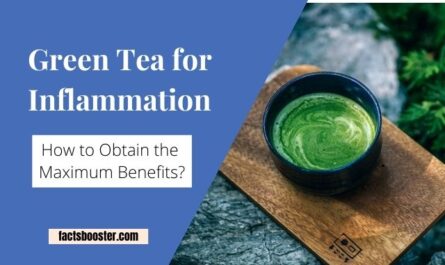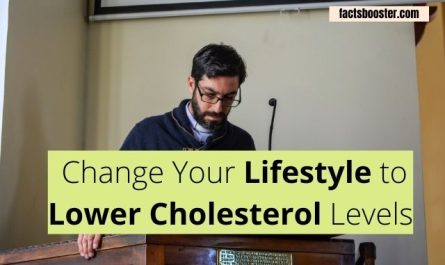Why am I still tired even after taking supplements? In today’s fast-paced and high-stress world, many people turn to dietary supplements in hopes of quickly restoring their energy. However, for most, the results aren’t as promising. They still wake up feeling groggy, struggle to stay awake at work, and find it difficult to fall asleep at night. So, what’s going on? In this article, we’ll dive deeper into the reasons behind this common issue.

Why Am I Still Tired Even After Taking Supplements?
Taking supplements is often seen as a quick fix for low energy, but many find that despite consistent use, the fatigue doesn’t go away. If you’ve been popping vitamins and health products but still feel drained, you’re not alone. There may be deeper reasons behind your constant tiredness. Let’s take a closer look at what might be going on beneath the surface.
1. Taking the Wrong Nutrients
Upon feeling tired, many people rush to buy multivitamins, B-complex, or iron supplements, hoping for a quick boost in energy. But the truth is, fatigue can stem from many different causes, and the nutrients each individual lacks can vary. Without identifying the root cause, taking the wrong supplement may be ineffective and have adverse effects.
Examples:
- If your fatigue is due to iron-deficiency anemia, taking iron supplements can help. This kind of fatigue is often accompanied by pale skin, dizziness, and a rapid heartbeat.
- If you’re under chronic stress, your body likely burns through B vitamins more quickly. A deficiency can lead to low energy and emotional instability. Supplementing with B-complex can support your nervous system and improve energy metabolism.
- If your fatigue stems from poor sleep quality, magnesium may help. Magnesium promotes muscle relaxation and better sleep. Once your sleep improves, so will your overall energy.
So, taking supplements blindly may waste your money and bring little benefit. For instance, excessive iron intake can lead to constipation or digestive discomfort.
2. Poor Nutrient Absorption
Sometimes it’s not a lack of nutrients, but the body’s inability to absorb them properly. Those with poor digestive health often have weaker absorption capabilities. Conditions like leaky gut, insufficient digestive enzymes, or low stomach acid can all interfere with nutrient absorption. Even if you take supplements, your body may not be able to make use of them. For example, people with a leaky gut may lose nutrients before they can be absorbed.
Other factors like aging, chronic illnesses (e.g., diabetes, liver or gallbladder disorders), or long-term medication use (e.g., antacids, antibiotics) can also interfere with absorption. Older adults often struggle with absorbing vitamin B12, and people who take antacids long-term may have trouble absorbing minerals.
Additionally, if your body doesn’t produce enough bile, even high doses of vitamin D may not be absorbed effectively. That’s because vitamin D is a fat-soluble nutrient, and bile helps in the absorption of fat-soluble vitamins.
3. Poor Lifestyle Habits
Many people assume that supplements can immediately wipe away fatigue. But nutrition is only one part of the energy puzzle. If it’s not paired with good sleep, stress management, and regular physical activity, your overall energy levels will still suffer.
If someone frequently stays up late and has irregular sleep patterns, even the most targeted supplements can’t make up for the body’s exhaustion. A sedentary lifestyle slows blood circulation and metabolism, leading to ongoing sluggishness. Additionally, living under chronic stress or anxiety can cause your body to release excessive amounts of stress hormones (like cortisol), which over time can leave you feeling both physically and mentally drained.
Ultimately, overcoming fatigue requires a holistic approach—this means keeping a consistent routine, exercising moderately, maintaining emotional stability, and supplementing only as needed.
4. Underlying Health Issues
Persistent fatigue may not be caused by a lack of nutrients at all—it could be a warning sign of a deeper health problem. If you’ve already improved your diet, taken supplements, and adjusted your lifestyle but still feel constantly tired, it’s time to consider a medical checkup.
Examples:
- Hypothyroidism slows your metabolism, causing low energy and heaviness in the limbs.
- Chronic inflammation or undiagnosed infections can drain the body’s energy reserves.
- Hormonal imbalances or adrenal dysfunction can lead to fatigue and mood swings.
- Those with prediabetes often feel tired and have trouble concentrating.
Silent Symptoms That Often Go Unnoticed
Sometimes, your body gives clues that something’s off—even if your lab tests look “normal.” Look out for:
- Waking up tired even after a full night’s sleep
- Sugar cravings, especially in the afternoon or evening
- Feeling cold all the time (even in warm rooms)
- Frequent bloating or constipation
- Trouble focusing or remembering things
- Mood swings or irritability
- Needing caffeine to function every day
- Slow recovery from workouts or illness
If you checked off more than a couple, your fatigue might have deeper roots than supplements alone can fix.
Conclusion
Why am I still tired even after taking supplements? It’s often the result of multiple interwoven factors. It’s not necessarily that the supplements don’t work, but perhaps you’re taking the wrong ones, not absorbing them properly, living with an imbalanced lifestyle, or experiencing undiagnosed health issues.
Remember, supplements are only a supportive tool, not a cure-all. To truly restore your energy, you need to build a strong foundation with good sleep, a balanced diet, emotional well-being, and regular movement. Only then can your body regain its full vitality.


